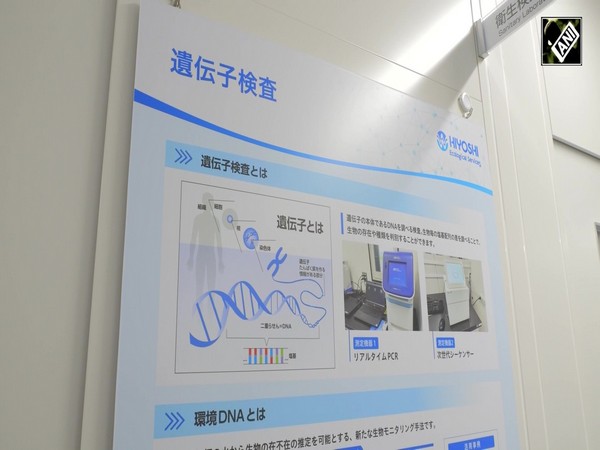China's AI-driven surveillance expands, threatening privacy and global security: Report
Feb 21, 2025

Beijing [China], February 21 : Homegrown artificial intelligence and other advanced technologies are enhancing the internal monitoring efforts of the Chinese Communist Party while also extending its influence and infiltration activities abroad according to a report by Radio Free Asia (RFA).
Recent developments in China's AI and big data, exemplified by the new DeepSeek AI model, are set to enhance the government's surveillance capabilities, even outside its borders, as reported by the National Endowment for Democracy on February 11, as cited by RFA.
"The People's Republic of China is particularly notable for its ambition to gather and utilize unprecedented amounts and types of data from both public and private sources, encompassing information from within and outside its borders, for social control," the report states.
China's increasingly advanced AI surveillance technologies employ facial recognition and merge various data streams to establish complex "city brains" that can monitor events in real time, author Valentin Weber said in the report.
"These instruments create a widespread surveillance network that could be employed by state officials to suppress protests before they occur," the report notes as quoted by RFA.
China is also exploring virtual reality technologies and brain-computer interfaces that may enable the authorities to manipulate individuals' mental states, impacting their privacy and autonomy, as per the report, the RFA report noted.
According to Chinese law, any data collected through these methods must be submitted to the government, even if it originates from a private entity. The nation's progress in quantum computing indicates it may one day make current encryption methods ineffective, as the report suggests, posing a risk to anyone who criticizes the Beijing government.
Additionally, its continued investment in the digital yuan facilitates greater control over citizens by allowing the government to monitor their purchasing and spending habits, RFA reported.
Zhou Fengsuo, executive director of Human Rights in China, indicated that technology has significantly enhanced the Chinese government's ability to manage people more effectively than in the past.
"Historically, totalitarian regimes like the old Soviet Union often demonstrated a degree of ineffectiveness," Zhou noted. "However, the present Chinese government is at the forefront of these technologies, which can indeed enable a level of precise control over the population that traditional methods could never attain" as quoted by RFA.



















